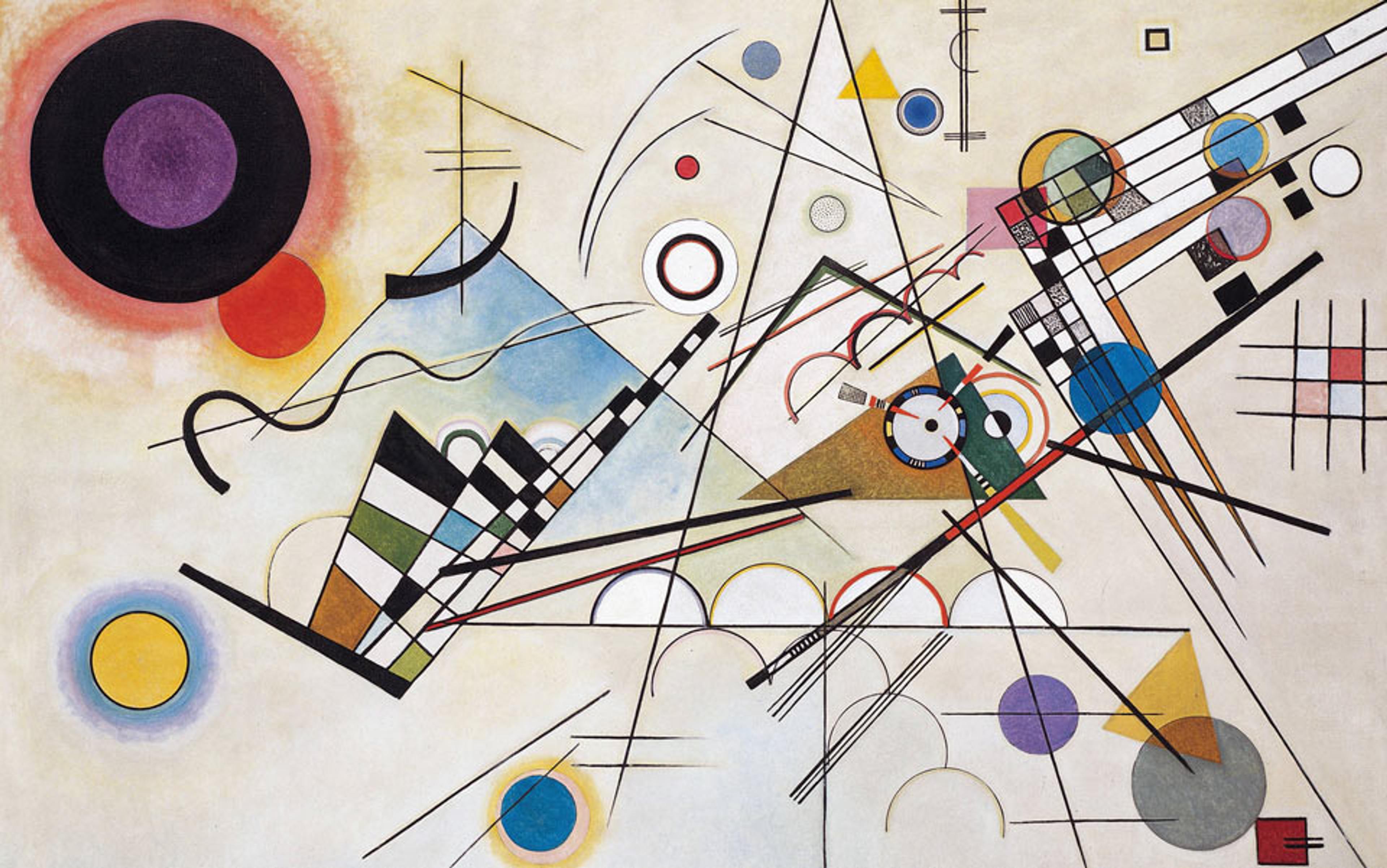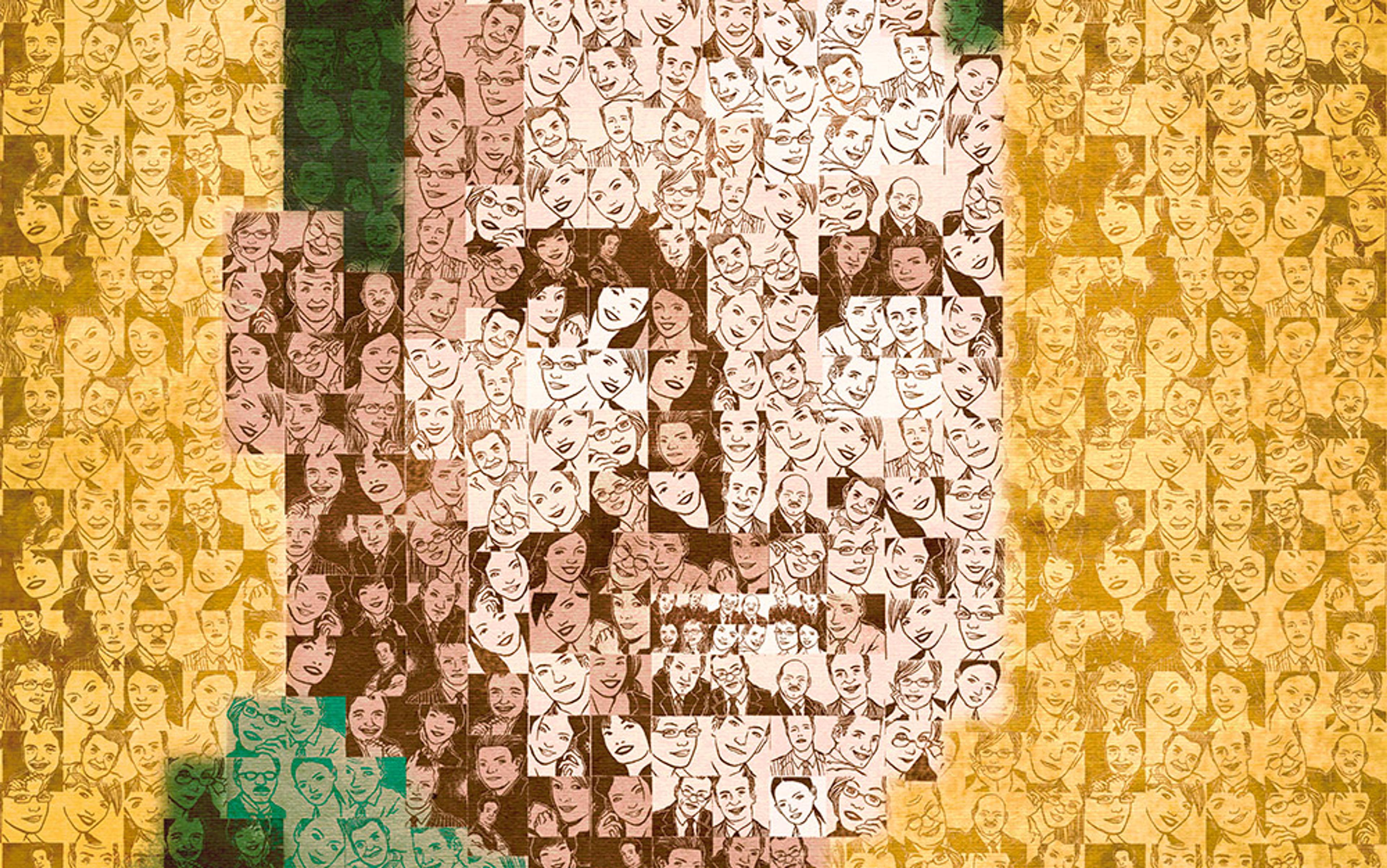Wisdom is full of paradoxes. It is one of the oldest topics in the intellectual history of humanity, and yet talking about wisdom can feel odd and disingenuous. People seem to have intuitions about who is and isn’t wise, but if you press them to define wisdom, they will hesitate. Wisdom, with its mystical qualities, sits on a pedestal, inspiring awe and trepidation, a bit of hushed reverence thrown in. It’s easy to distil wisdom’s archetypes in history (druids, Sufi sages) or popular culture (Star Wars’ Yoda, or Harry Potter’s Dumbledore), but harder to apply to the person on the street. Most people would agree that wisdom is desirable, yet what exactly is it?
It’s tempting to claim that the interest in wisdom emerged with the advent of particular Far Eastern philosophical traditions such as Buddhism, Hinduism, Taoism, each emphasising lives of sages and ways to make sense of one’s existence in the ever-changing world. Of course, neither the concept of sages nor the process of making sense of the world are specific to a particular school of thought – most religions and ideologies have their own sages and saints, and attempt to provide a certain worldview. The truth is, the concept of wisdom is incredibly ancient, and not unique to any specific culture or way of being.
For instance, more than 5,000 years ago in ancient Mesopotamia, the Moon-god Nanna, the Lord of Wisdom, symbolised the sum of all other Sumerian deities’ powers, including foresight, justice, fertility and love. Wisdom was a prominent topic in ancient Egyptian and Jewish texts, and featured as a requirement in advising professions such as divinity, sorcery or at the pharaoh’s court. In his Maxims, the ancient Egyptian vizier Ptahhotep described guidelines for sustaining social order, achieving political success and cultivating self-control – in other words, the skills of wisdom. In the Old Testament’s Book of Ecclesiastes, where life is beyond comprehension, wisdom recognises the limits of knowledge.
If we had a time machine and could travel to a point in history roughly midway between Ancient Mesopotamia and now, we would find ourselves in Ancient Greece during the time of Pythagoras, Plato and Aristotle. Pythagoras advanced mathematics and music theory, and is one possible source for the term ‘philosophy’ – the love of wisdom (philo-sophia). For Pythagoras, numbers were an underlying feature of reality, mysticism, the harmonic balance of opposites, and wisdom itself. Building on some of Pythagoras’ ideas, Plato and his best student Aristotle considered wisdom an essential human virtue – ‘a habit of mind in harmony with reason and the order of nature’, as the Roman philosopher and statesman Cicero would write a few centuries later. For Aristotle, as for Near Eastern thinkers millennia before him, wisdom was a key element on the path to achieving a good life, a path that required balance and moderation between extremes.
As an ideological backbone to medieval Christian philosophy, Platonic and Aristotelian ideas about wisdom continued to dominate the scholarly debates for centuries. Theologians such as Augustine of Hippo and later Thomas Aquinas interpreted the Greeks’ writings in terms of Christian ideals when debating the foundations of reason, understanding or the nature of ethics.
Despite all this, the fascination with wisdom started to decline during the Renaissance and the Age of Enlightenment. With the advance of modernity, the discourse shifted from the good life toward the pursuit of rational self-interest and usefulness – ideas that focused on immediate benefits and aimed to reduce complex ethical dilemmas to a single common denominator, rather than balance and moderation.
The topic of wisdom didn’t re-emerge in mainstream philosophical circles until the 1970s, along with post-Second World War stability and the New Age zeitgeist. A new focus on ‘optimal’ happiness and psychological fulfilment led to the rediscovery both of Aristotelian ideas about virtues and of non-Western perspectives on flourishing. In philosophy, Alasdair MacIntyre’s After Virtue (1981) led to renewed interest in the topic of wisdom from an Aristotelian perspective.
Behavioural scientists were fairly late to the game, with the first humble attempt to empirically study wisdom surfacing in the 1970s in a dissertation by Vivian Clayton. Today a geriatric neuropsychologist in California, Clayton aimed to explore the characteristics a group of 83 lay Americans associated with a wise person, and arrived at three commonly held elements: cognition, reflection and compassion.
Like Aristotle millennia before, the psychologists and social scientists who came after Clayton agreed that wisdom was oriented toward the pursuit of a good life. Yet, what does such pursuit entail? The meaning of the good life and ways to achieve it vary by philosophical school. Because of the long and diverse intellectual history of wisdom, scientists could pick and choose definitions. Whereas some scientists followed Platonic and Aristotelian ideas, others borrowed from Buddhism, Hinduism or Taoism – promoting worldviews that relate to the environment in quite different if not opposite ways. Some researchers sidestepped philosophy altogether, reserving the label ‘wisdom’ for the mature level of adult development. And some embarked on a Quixote-like quest to find wisdom in old age without a clear definition of either wisdom or ‘old age’. After all, the meaning of ‘old’ has changed dramatically in the past few centuries, with lengthening average human lifespans.
The scientific approach to wisdom has started to gain momentum only in the past few decades, around the time the world started to face rising social and climatic instabilities. Some worried that this momentum was leading to an abyss. Picking and choosing different philosophical traditions and developing theories without serious debate between them placed wisdom scientists at the beginning of the 21st century at loggerheads: a field full of words didn’t yet share the same language. A recent handbook of wisdom included as many definitions of the concept as there were chapters. Like in a tower of Babylon, scholars were risking a collapse of a slowly emerging scientific field.
I was one of the many scientists on the trail of wisdom and its meaning, and I was worried about these trends. But, like most scholars, I first kept quiet. Then, a deadly series of events woke me up from my academic slumber. On Easter Sunday 2019, suicide bombers across Sri Lanka orchestrated one of the world’s most fatal coordinated terrorist attacks in a decade, killing more than 250 people in several cities. What is the value of wisdom in a polarised world full of violence and hate? How can we use wisdom to combat these trends? Like so many people in the tragic aftermath of those bombings in Sri Lanka, I wondered about these questions. The attacks affected me personally, too. The first Pan-Asian summit on wisdom, which I had helped to organise, was supposed to take place in Sri Lanka just a month later.
Working through conference cancellations, I had an idea: why not bring the wisdom scholars to my home base in Toronto? And so I invited behavioural and social scientists to join a discussion intended to clarify the language and the necessary conditions for a psychological wisdom construct. I wanted to deconstruct wisdom, to establish a common understanding of its vital psychological ingredients, so it can be used for the common good.
Some of the most prolific and world-renowned wisdom scientists responded to this call, forming the core of the Toronto Wisdom Task Force. An even larger number of research groups responded to a survey I distributed through various mailing lists to gather scientists’ opinions on wisdom and ways to measure it; we would analyse their responses before the meeting and discuss them there. And so, on a sunny, sweltering day in July 2019, wisdom scientists from Australia, China, Europe and North America gathered at the University of Toronto, with a live stream followed by an even larger group of scholars from other countries.
Our chief goal was to explore the possibility of a scientific consensus on the psychological characteristics of wisdom and best practices for its measurement. We hoped to take down wisdom from its mystical pedestal and find a more pragmatic, concrete footing that would work not just for sages and fictional characters, but also for regular humans.
Claims that older Americans are more communal and wiser might be due to cultural change rather than ageing
One of our first tasks was identifying the pitfalls common to unwary scholars of wisdom. Three missteps stood out.
The first was seeing the quality of wisdom as an all-or-none category, primarily inherited or bestowed by nature, a concept known as psychological essentialism. Studied by the psychologist Susan Gelman and many others, this is the belief that a construct such as wisdom can be boiled down to some true nature you can’t observe directly. Psychological essentialism is a common way that people make sense of the world. And as much as scientists like to pretend otherwise, they are people too. As early as preschool, humans intuitively learn to create abstract, even socially constructed, categories such as race and gender into distinct groups with clear-cut boundaries. It can be a useful rule of thumb to make initial sense of the world. But it is also prone to error, the perpetuation of inaccurate stereotypes, and misinterpretation of the boundaries that one artificially creates in one’s head. Prior research has relied on essentialism when erroneously considering wisdom chiefly as an embodiment of fixed ‘have-or-have-not’ personality characteristics rather than a trait that varies with situation and other factors.
The second pitfall that many behavioural scientists frequently stumble into is the ecological fallacy, in which they equate the individual differences between people or by situation to more general differences across whole groups or over a lifetime. Consider a hypothetical scenario: Scientist A, we will call her Inga, gathers data from college students and older adults on a wisdom task. Scientist B, we will call him Igor, looks at the differences between these groups and claims that wisdom improves throughout life. What is wrong with this claim? Igor is committing the ecological fallacy because group differences between people growing up in different eras do not necessarily speak to intra-individual change over time. Differences could be about ageing. But they might also be about the unique ecological contexts in which these groups were growing up. For instance, American culture has become much more individualistic in the past half-century. Thus, any claims that older Americans are more communal and maybe even wiser than their younger counterparts might be due to cultural change rather than ageing. Logic dictates that we should beware of unfounded assumptions that what is true for the whole would also be true to its parts but, being human, scientists are not always logical.
The third pitfall concerns re-imagining a desirable characteristic in one’s own image, using one’s personal intuitions, introspections or behaviour as a standard for the trait. For instance, the Swiss scholar of cognitive development Jean Piaget was known from an early age for his scientific aptitude and logical reasoning. He also considered logical thinking as the final stage of mature thought. Lawrence Kohlberg, one of the 20th century’s most influential moral psychologists, referred to Jesus, Buddha, and… (according to some anecdotes) Lawrence Kohlberg himself as persons achieving the highest stage of moral reasoning. Curiously, as a man, Kohlberg didn’t think that women could achieve the highest level of morality. This tendency, which I call the ‘I am standard’ fallacy, is partially responsible for the myriad ways in which scholars have defined wisdom in the past.
To shine a light on our biases, the Task Force targeted the ‘I am standard’ fallacy upfront by reviewing survey results for working definitions of wisdom and dominant theories and methods used to study the trait among our peers. Given the ‘I am’ fallacy, I expected to find disarray. But what we found was surprising. Scientists from distinct philosophical traditions often used different language to describe what they measured. But when we looked ‘under the hood’, breaking down the abstract terms into actual psychological processes, we identified a high degree of overlap between wisdom scholars.
For instance, we found that scientists, like many philosophers before them, considered wisdom to be morally grounded: an aspirational quality helping you figure out the right thing to do in a complex situation and promote the common good. For the group, wisdom broadly included ideas such as the sense of shared humanity, pursuit of truth, recognition of the need to balance personal interests with other people’s interests, and a general willingness to cooperate and have compassion for others. Most scholars didn’t insist on moral behaviour as a prerequisite for wisdom. Sometimes a situation prevents one from acting on one’s moral impulses. Other times people make mistakes. Nonetheless, our task force agreed that moral grounding was the first foundational pillar of the common wisdom model in empirical sciences.
The second foundational pillar we arrived at was meta-cognition – the overarching mental processes that guide our thoughts. Human thoughts can be guided by a range of emotions, motives and visceral responses. Thoughts are governed by other thoughts, too, which is what meta-cognition is about. We engage in meta-cognition when creating reminders for an ingredient we might otherwise forget when cooking a new recipe, or when following specific instructions for assembling an Ikea chair. Meta-cognition also helps us check ourselves when we are wrong or when as we gather a broader range of perspectives on complex issues, gaining a big-picture view. You engage meta-cognition when showing signs of intellectual humility, recognising the limits of your knowledge. Or when you consider the diverse perspectives of those with whom you disagree.
When moral goals stand in conflict, there is no simple moral rule that the wise can apply
In the common wisdom model established by the task force, the two pillars of wisdom work in tandem. Meta-cognition without moral aspirations would mark a cunning sociopath rather than a wise person. The good news is that sociopathy is rare: moral aspiration usually goes hand-in-hand with a big-picture point of view. At the same time, studies show that meta-cognition facilitates greater awareness of ethical concerns and increases cooperation. After all, moral aspirations on their own are abstract concepts. To effectively apply them in daily life, you need to take the big picture into account and compare it with a range of other circumstances you faced (or learned about) in the past. When the situation is complex and moral goals stand in conflict, there is no simple moral rule that the wise can apply. Instead, you need meta-cognition itself to balance different moral goals based on the details of a situation.
Consider an example. You are the best man or woman at your brother’s wedding, and it is your task to bring the wedding rings. The wedding takes place in a nearby city and your only chance to get there on time is to board the next train. You arrive at the train station. As you go to buy the ticket, you realise that your wallet and cellphone are missing. There’s no time to talk to the police, and other people at the station refuse your requests to use their phone or lend you money to call your brother. Desperate, you sit down on a bench in the main hall. You notice that the well-off person sitting next to you takes a phone call, stands up and walks around the corner to talk in private. Left on the bench is the person’s expensive jacket. You notice a ticket for your train half-sticking out of the jacket pocket. You could easily take this ticket without anybody noticing. This person looks like they could buy a replacement without any problem, as the train is half-empty. What should you do?
This story is tricky because different moral principles stand in conflict with each other. Would the idea that ‘stealing in an unjust crime’ trump your consideration of loyalty toward your family, or vice versa? To effectively work through this dilemma, you need to weigh the different moral principles that come to mind. You need to ask yourself how you feel about these decision alternatives, what your cultural upbringing tells you about them, and what the specifics of your situation are. Each of these tasks requires meta-cognitive ability to construct the big picture, making it an essential feature of wise judgment.
Our task force found that moral aspirations and meta-cognition provide a bridge across a whole range of philosophical positions and psychological theories. For instance, both the Aristotelian idea of practical wisdom and the notion that wisdom concerns self-reflection, common to developmental psychology, appear to require similar meta-cognitive building blocks: deliberation on what is variable, consideration of one’s limits, acknowledgment of diverse perspectives, and some attempt to balance and integrate these perspectives. And if that is the case, it is now finally possible to measure these building blocks systematically. It is also possible to figure out how to cultivate them – the holy grail in classic philosophy and modern education science.
With wisdom’s foundational pillars providing a base, we turned back to the first two pitfalls: psychological essentialism and the ecological fallacy. How could we avoid these when measuring moral aspiration and meta-cognition, so that our science stayed rigorous and consistent from one lab to the next?
In measurement theory, modern behavioural science recommends observing the same person across several diagnostic situations. I mention diagnostic situations because not all cases call for wisdom. In contrast with the train ticket example above, little wisdom is needed when learning how to ride a bicycle or calculating one’s financial wealth, as long as either task doesn’t include a social component.
By measuring specific situations, scientists can contextualise wisdom. You can avoid psychological essentialism and ecological fallacy as long as you don’t generalise from unique behaviour in specific situations to the person or an entire group writ large.
But what if you want to measure the person’s wisdom as a whole? In this case, state-of-the-art methods mean measuring people repeatedly. This way, you can estimate both how wise the person is in general (averaging her responses) and how she varies from one situation to the next. This approach elegantly avoids ecological fallacy, where discrete finds are generalised to mean more than they do.
In the Toronto Wisdom Task Force, we underscored that the choice of measure depends on the question one wants to answer. We distinguished between questions concerning performance in specific situations (for instance, how likely are you to consider diverse viewpoints when facing a challenging situation?) and abstract self-perceptions (how good at perspective-taking do you think you are?) Each approach has strengths and weaknesses. The point is that there is no one-size-fits-all metric for wisdom, and a single metric is never enough.
Because wisdom is desirable, measuring its moral or meta-cognitive features presents unique challenges. Self-views of such meta-cognitive features as intellectual humility must be taken with a grain of salt. After all, telling someone that you’re humbler than others would be antithetical to the notion of humility. Instead of asking people about their self-perceptions on humility in general, ask about specific situations in which the person might have shown humility, contextualising your questions.
By establishing moral aspirations and meta-cognition as central pillars of the common wisdom model, and establishing best practices for their measurement in light of the pitfalls, the task force was finally ready to address a final, critical issue: how could these pillars be cultivated? The first step was to understand how wisdom varies from one situation to the next. Turns out, it varies a lot.
Solomon showed great wisdom in other people’s problems, but great folly in his personal ones
In one of my first experimental studies on wisdom, my colleague Ethan Kross and I invited persons in a monogamous romantic relationship to come to our lab, randomly assigning them to two groups. One group reflected on a situation in which their partner admits being unfaithful. Another group reflected on a similar situation, but this time it’s a close friend who’s been unfaithful. When we assessed the extent to which participants recognised the limits of their knowledge, were willing to consider diverse viewpoints or find different ways in which the situation might unfold, we were surprised. Even though the participants reflected on the same type of situation, those who thought about a friend’s partner being unfaithful were substantially more likely to engage in each aspect of meta-cognition than the people whose own partner revealed they’d been unfaithful. This finding is not intuitive: don’t we know ourselves better than we know our friends? Aren’t we more motivated to work through an issue that concerns us personally? Despite possibly more in-depth insight and greater motivation when the situation concerns ourselves, our ability to reflect on interpersonal transgressions in our personal lives appears diminished.
Since I conducted this first study, asymmetry in wisdom was replicated in other laboratories, not only for infidelity but also for betrayal of trust. Yet other scholars have observed a similar asymmetry for creativity and loss aversion in decision-making. I coined the term ‘Solomon’s paradox’ to describe this asymmetry, named after the Jewish king. He showed great wisdom when it came to other people’s problems but also a great deal of folly when it came to his personal challenges.
As it turns out, wisdom doesn’t vary only between people who read about hypothetical scenarios in a laboratory. Even the same person typically shows substantial variability over time. Several years back, researchers asked a group of Berliners to report their most challenging personal issue. Participants also reported how they reasoned about each challenge, including meta-cognitive strategies similar to those described above. When inspecting the results, scholars observed a peculiar pattern: for most characteristics, there was more variability within the same person over time than there was between people. In short, wisdom was highly variable from one situation to the next. The variability also followed systematic rules. It heightened when participants focused on close others and work colleagues, compared with cases when participants focused solely on themselves.
These studies reveal a certain irony: in those situations where we might care the most about behaving wisely, we’re least likely to do so. Is there a way to use evidence-based insights to counter this tendency?
My team addressed this by altering the way we approach situations in which wisdom is heightened or suppressed. When a situation concerns you personally, you can imagine being a distant self. For instance, you can use third-person language (‘What does she/he think?’ instead of ‘What do I think?’), or mentally put some temporal space between yourself and the situation (how would I respond ‘a year from now’?). Studies show that such distancing strategies help people reflect on a range of social challenges in a wiser fashion. In fact, initial studies suggest that writing a daily diary in a distant-self mode not only boosts wisdom in the short term but can also lead to gains in wisdom over time. The holy grail of wisdom training appears one step closer today.
As the sun set over Toronto, the first Wisdom Task Force meeting was coming to an end. We made a strong start, finding a unified voice about wisdom’s psychological pillars, establishing a common language, and identifying best practices for assessment. Given the brevity of the meeting, many questions remained unanswered. Can there be artificial wisdom (and how would it be distinct from artificial intelligence)? Are the psychological pillars of wisdom always desirable? How exactly can insights about wisdom be applied during times of uncertainty and civic unrest? In the months that followed, the task force members began working on a report from the meeting, as the whole world started getting closer to midnight on the atomic clock. The first half of the year 2020 has brought us bushfires in Australia, a worldwide pandemic, societal unrest, global economic fallout and counting. In such times, wisdom appears more needed than ever before. By deconstructing it, scientists can now turn an eye toward nurturing and sustaining wisdom in challenging times.
To read more about wisdom, visit Aeon’s sister site, Psyche, a new digital magazine that illuminates the human condition through three prisms: mental health; the perennial question of ‘how to live’; and the artistic and transcendent facets of life.






